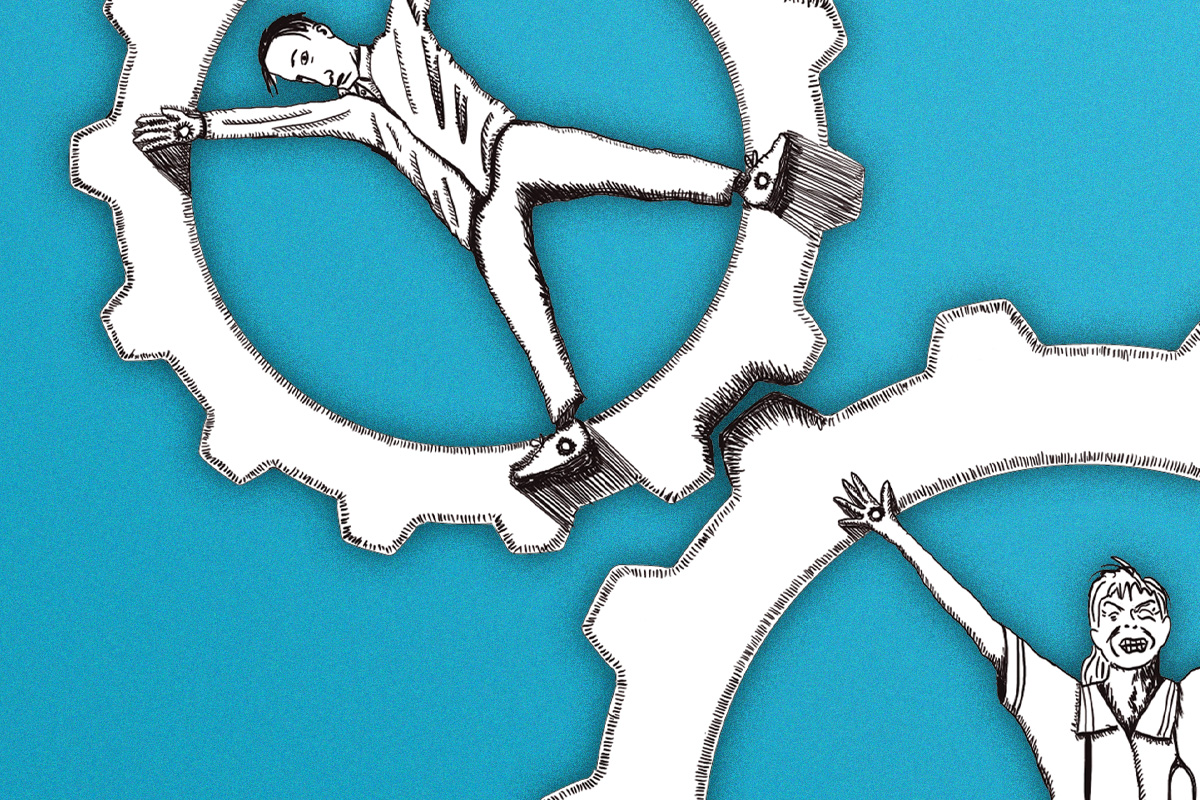The magnificent strike of public sector workers on July 10th was a wake-up call to the Labour and trade union movement and especially its leaders. Over one million workers came out on strike to defend services, jobs, pay, pensions, and terms and conditions. Darrall Cozens, President of the Coventry TUC, asks: what next for the trade unions?
The magnificent strike of public sector workers on July 10th was a wake-up call to the Labour and trade union movement and especially its leaders. Over one million workers came out on strike to defend services, jobs, pay, pensions, and terms and conditions. Hundreds of thousands attended picket lines, rallies and marches up and down the country. Many of those on the pickets were there for the first time and included young members, both men and women, of all ethnic and cultural backgrounds.
The fighting mood of those on strike also affected the public, as opinion polls the day after were overwhelmingly with the strikers.
The pickets also had an effect on those who crossed the lines as it left them wondering why so many had gone out. Some also refused to cross the line. Although NASUWT members were not out, in some schools they stayed at home so as not to break the NUT action. It is now important in the coming weeks to recruit new members, build the union density and get more elected reps across all sectors. In the local authorities too it is necessary to build joint union committees at all levels, as further battles will inevitably take place given that some 60% of planned cuts are still to come.
Need for escalation: for a one-day general strike
The unity of six unions taking coordinated action together certainly helped. However, there was also the realisation amongst many that the only way to win will be to take the action to the next level and that the TUC should now take a lead by calling a one-day general strike in the autumn so as to build on what has been achieved. There is a willingness to fight at this moment, but we know that the mood can easily be dissipated if there are long periods of inaction. A plan from the top to organise action amongst workers across the economy would give members something to plan and organise for.
In the Midlands, a recent regional TUC conference passed a motion to organise a march and rally on September 28th in Birmingham at the Tory Party conference. The TUC nationally is also organising a national demonstration on October 18th. Planning and organising for these two events will help to maintain the momentum. However, the leadership of those unions involved on July 10th must act now by organising further joint action that can be built into a one-day public sector general strike. This is critical.
Through the trade union structures too there is a lot that can be done. Motions can be passed at branch and regional meetings, with such motions first being taken to the members in the workplaces to involve them in the discussions and raise the level of understanding of the issues, to keep pressure on the national leaderships to organise a one-day General Strike as the logical outcome of the present mood. Such pressure is necessary as there is talk of some trade union leaders going to ACAS to try and get a compromise agreement even before any further action.
For united action across the labour movement
We know that there are a range of issues that affect workers – service provision, wages, cuts, jobs, pensions, and so on – but there is also the idea being proposed of concentrating on one issue to act as a beacon of mobilisation where other issues can then be woven into the narrative. The issue that is gaining traction is a campaign for a £10 per hour minimum wage. At the moment the TUC slogan is “Britain Needs a Pay Rise”. But this slogan, with the idea of “Britain needs…”, implies everyone, with both the rich and the poor lumped together; the slogan in effect means that everyone should have a pay rise. The slogan ignores the fact that the rich were rewarding themselves with huge pay packets and bonuses before 2008 and continued to do so during the recession. That is why the net worth of the top 1% went up by 15.4% to £519bn in 2013 alone, while most workers suffered cuts in real pay of between 12-20%. A campaign around a £10 per hour minimum wage would unite workers in all areas of the economy and would generate discussions about who creates wealth through their labour and who pockets a large part of that wealth.
To bring workers in the so-called “private” sector of the economy, the six public sector trade unions in Coventry, for example, will work together over the next few weeks to draw up a joint statement outlining the effects that cuts will have on all workers, whether they are service providers or users. The unions and Coventry TUC will then offer the statement and speakers to trade union branches, shop stewards committees, and other labour and community organisations, to help build and cement the links between all workers at work, at union meetings and in the communities. It is a fact that there are still workers who have not experienced the cuts and have therefore accepted the media propaganda that the cuts are necessary. Given that most people learn by experience that is not surprising. After all, life teaches. The scale of cuts to come will eventually affect all workers.
Labour must offer a socialist alternative
Except for a few notable exceptions, the absence of leading elected Labour Party figures out on the streets supporting public sector workers on July 10th was a scandal. The natural reservoir of support for Labour amongst low paid public sector workers are being tested to the nth degree, and that support cannot be taken for granted. It is therefore not surprising that recent opinion polls less than 12 months before the next election have Labour and the Tories neck and neck despite the savagery of the Tories’ austerity programme. If Labour does not differentiate itself from the Tories and offer some policies of hope for workers, there is the distinct possibility that the Tories will be elected in 2015. That scenario will wreak havoc on working class living standards and the fault for that will be correctly laid at the door of the right-wing Labour leaders.
The government too is in a quandary. It knows that there is a groundswell of public support for firefighters, council workers and low paid civil servants. That is why the ideas put forward by top Tories of a 50% threshold in strike ballots, or even the outlawing of strikes in the public sector, have not been greeted with much support from the public. The unions need to make it clear that such proposals will be fought against as part of the demand to repeal all anti-trade union laws.
This mood generated by July 10th will not last forever. At the moment history is with us. More workers are confident and the public mood is supportive. This must not be left to wither on the vine.
Capitalism is in crisis. Even if there is a modicum of economic recovery, the cuts will continue. This government needs to be stopped and it is only the labour movement that can do it, armed with a socialist programme to provide a real alternative to the austerity consensus.





